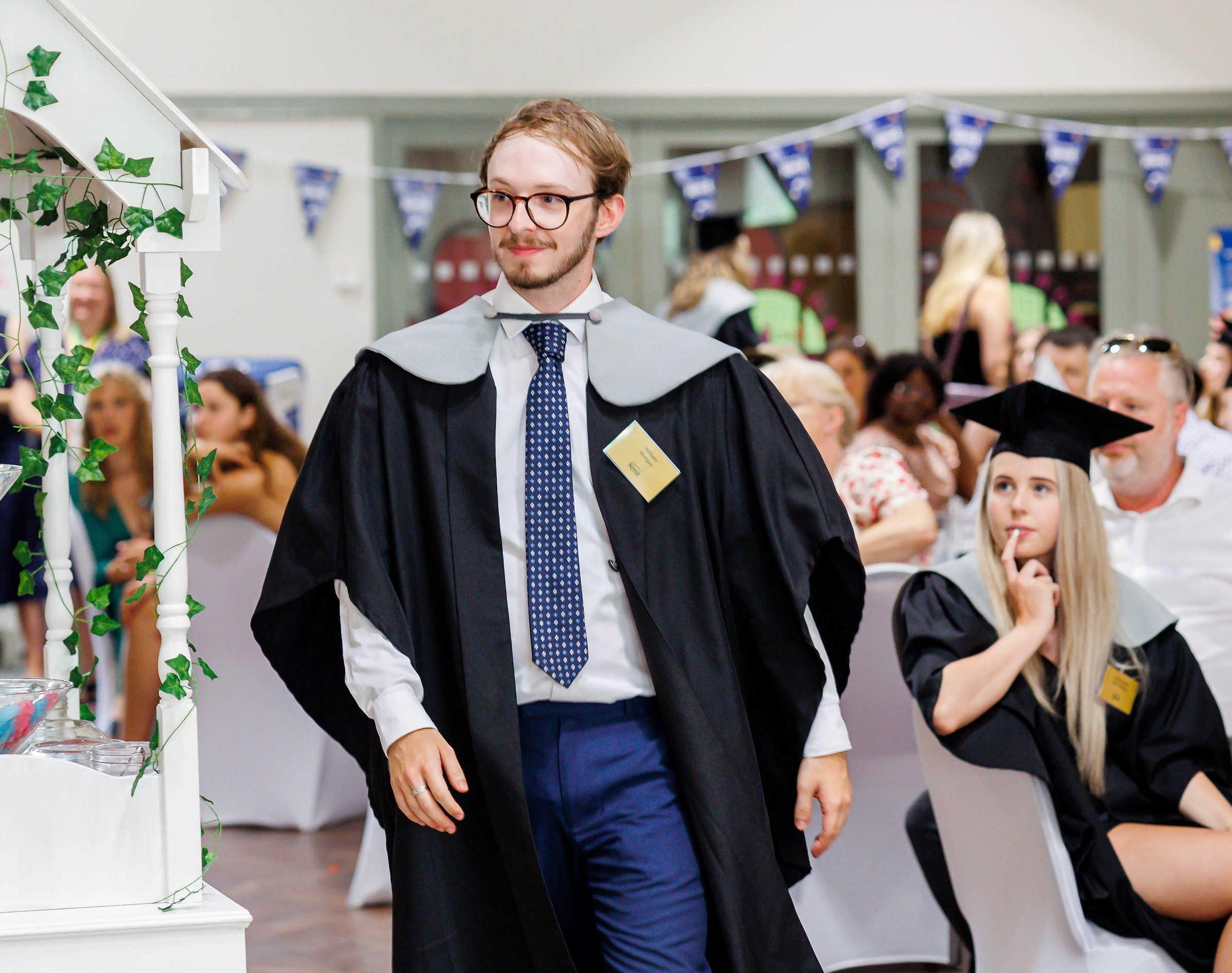Recent graduate William Morgan was awarded a first-class Economics degree and also received the Best Dissertation prize for his research analysing the impact of the Stamp Duty ‘Holidays’ during the COVID-19 pandemic. He blogs about the process of working on this research and his time studying at Kent.
‘I studied the effect of the Stamp Duty ‘Holidays’ on property sales in the UK during the COVID-19 pandemic. This related to work I had done during my placement year in HM Treasury where I worked on tax strategy.
The holidays were one of a number of significant economic interventions the government announced during the pandemic and were estimated to cost the Exchequer over £2.5 billion. As such, it is important to analyse and evaluate the effect of these policies to make sure that government policy has worked as intended. My goal was to determine whether it was, in fact, the holidays which caused changes in property sales rather than other macroeconomic trends.
The staggered withdrawal of the holidays throughout 2021 allowed me to set up a natural experiment. I used both the classical difference-in-difference method as well as a more complex Two-Way Fixed Effects model to determine that there was evidence of a causal relationship between the Stamp Duty holidays and property transactions during this time.
The process of writing a dissertation is lengthy and challenging, however I found it overall to be a rewarding and interesting experience. One of the exciting parts of a dissertation is that you can choose the topic, allowing you to explore something that is of interest to you. I was keen to apply some of the knowledge I acquired during my placement year, that being said, the variety of dissertation topics produced shows that you can choose almost anything and find an economic angle to write about.
Another rewarding part of a dissertation is finally applying some of the skills you’ve gained over your two-and-a-bit years of studying. I first learned about the methods I would eventually end up using in ECON5420 (a module I would highly recommend to all students). As I played around with the models when preparing my diss, I gained a much deeper understanding of how they worked than I had before. As a result, my previous modules helped me produce a better dissertation and in turn, that process helped me in my exams later on.
As I said previously as part of my course, I also did a year in industry, where I worked on tax strategy for the Budget at HM Treasury. I found this to be challenging, exciting and overall a hugely formative experience. The skills I acquired and the newfound confidence I gained had an enormous impact on my final year of studying and I’m sure will continue to into the future. Again, much of this is down to the incredible support I received from my colleagues in the department and particularly my line managers and team members in the Budget and Finance Bill team. Since passing the Economic Assessment Centre at the end of my placement, I’m pleased to announce that I will be continuing in the UK Civil Service as an Assistant Economist at the Department for International Trade (DIT)! I am extremely happy with my final result and am thankful to all the friends, professors and mentors I’ve had without whom I wouldn’t have been able to succeed.
On a more personal note, I was able to achieve a dream of mine this year. It was a huge privilege to be asked to perform a movement from Mozart’s Piano Concerto No21 with the University of Kent Symphony Orchestra. The music department has offered a huge amount helping me to develop as a musician which I am especially grateful for.
All in all, a huge thank you to the University of Kent, it’s been a blast!’
William Morgan graduated with a BSc (Hons) in Economics with a Year in Industry.
Find the Kent Economics Undergraduate Research Journal here.

